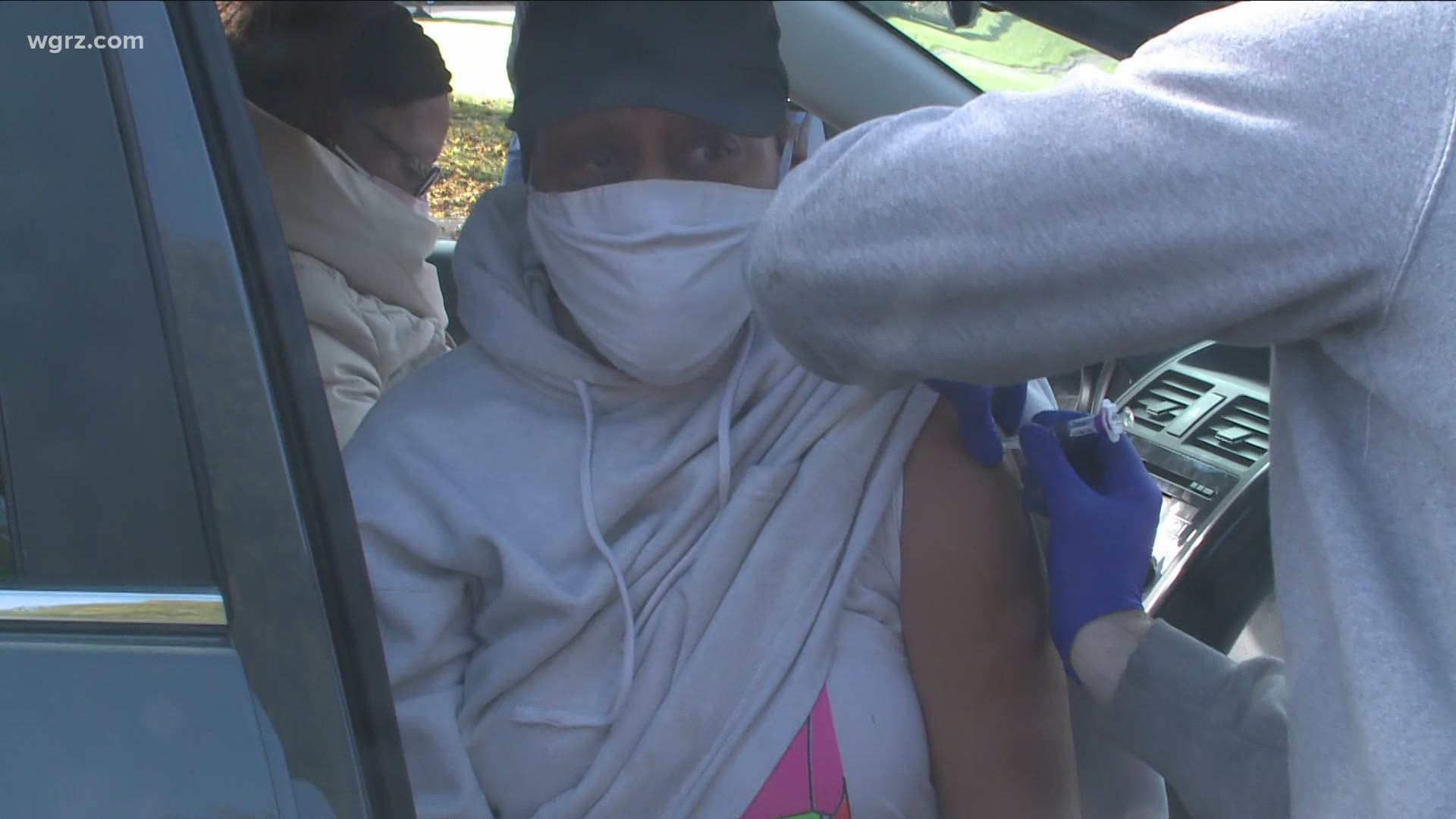BUFFALO, N.Y. — As states across the country continue to rollout their distribution plans, most of which put nursing homes, nursing home staff and frontline workers at the top of the list, communities of color in America are still grappling with how to stay afloat.
For Black and Brown communities, the growing social, economic, and health disparities exacerbated by COVID-19 are continuing to grow, even with a vaccine on the marketplace.
With a lack of access to healthcare, testing, proper diagnosis and care, for many living in some of the most destitute zip codes, can't begin to fathom where and how they will ever get vaccinated.
In fact, skepticism around these vaccines, especially in Black and Brown communities, is growing.
Dr. Raul Vasquez is the CEO of Urban Family Practice on the West Side of Buffalo and told 2 On Your Side, "How can one trust a new form of medical help when the system, for a majority of people in these communities, has failed them from the beginning?"
Vasquez says it's important for local lawmakers and community leaders to join medical leaders to ensure that the distribution of both the Pfizer and Moderna vaccines are equal and efficient.
According to Vasquez, minorities roughly make up 20 percent of the (give or take) 50 percent of Americans who say they are skeptical of getting vaccinated.
A big reason for this?
"A lack of public education," Vasquez says. "It's going to be hard to get to that 70 or 80 percent if we leave the people in the back who need to be in the front."
"I don't think the county has really done a good job in terms of translating to multiple different cultures." Vasquez says, especially with an operation like this, comfort and trust are everything.
"The language, the description... the more comfortable people are understanding the better they are taking this stuff," he says.
Which is why Vasquez has joined forces with Dr. Myron Glick, CEO and founder of Jericho Road Community Health Center, also in Buffalo, to expand outreach in communities of color during this time.
"If we get that group early because it's a difficult group to deal with, we may be out of this by the second quarter of 2021, if we don't we could be looking at the second quarter of 2022," Vasquez said.
Glick is of the same school of thought.
Glick released a statement on the community center's Facebook page, saying in part, "If a White person is tested at Jericho Road for COVID, they have a 3 percent chance of being positive, compared to a Black person who has a 13 percent chance, or a Burmese refugee who has a 24 percent chance of being positive."
This means, in order to raise the level of confidence in zip codes here that have been hit the hardest - 14201, 14211, 14207 - there needs to be a strategic effort to create and build resources that touches these communities first hand.
Community ambassadors, focus groups, more public education, more community driven medicine, these are just a few examples, Vasquez says, of establishing trust and boosting confidence where there's little to none.
"If you put them towards the end of the line this whole process is going to be, not a failure, but it won't be effective in terms of what you're trying to accomplish."

